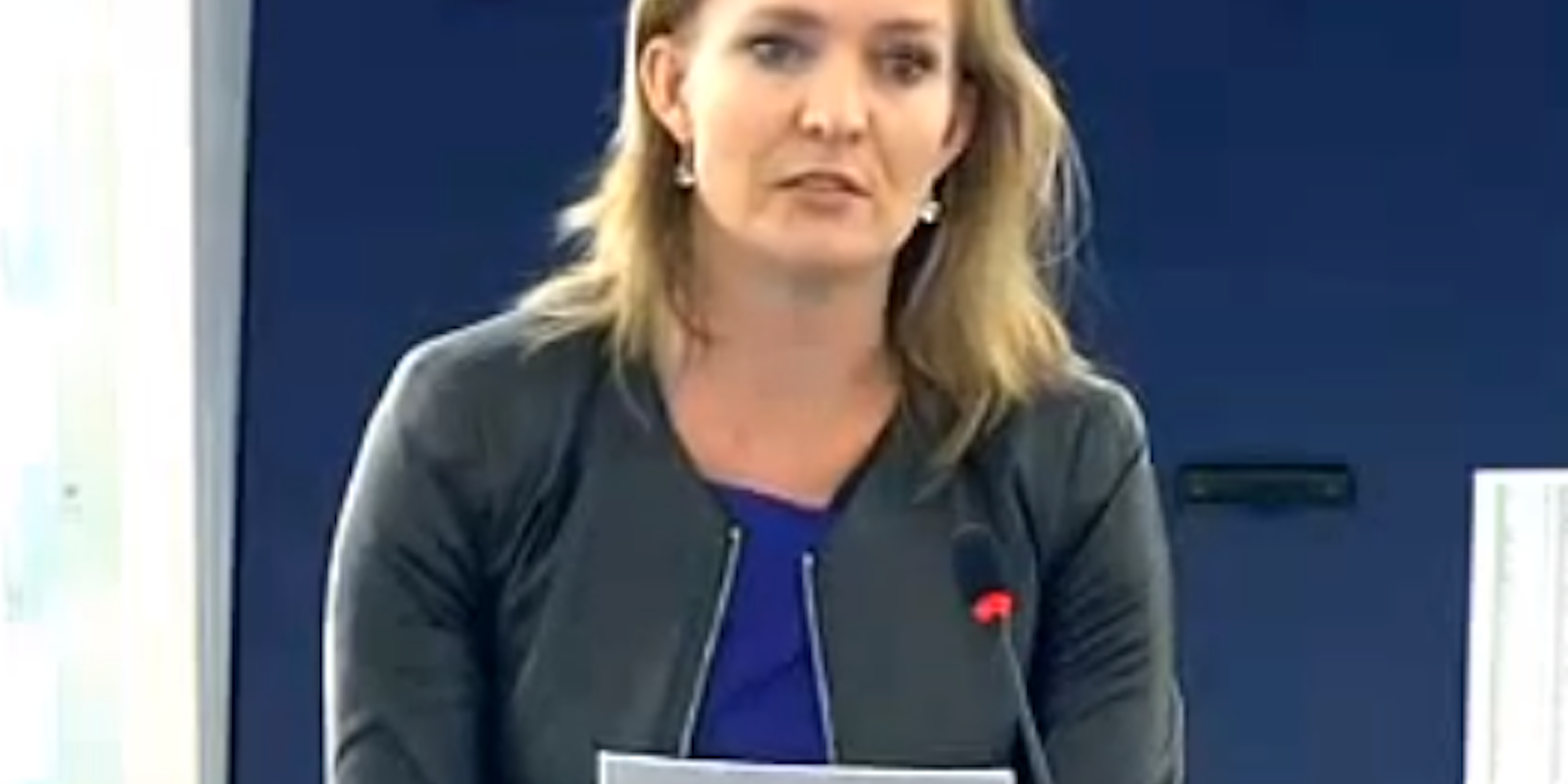The European Union has passed a landmark resolution for Internet rights.
The 27-country union now “recognises that uncensored access to the open internet [has] impacted on human rights and fundamental freedoms[…]by expanding the scope of freedom of expression, access to information, the right to privacy and freedom of assembly across the world,” according to a resolution passed Tuesday.
It was authored by Marietje Schaake, Member of European Parliament (MEP) for Denmark, who’s regarded as one of the Internet’s biggest defenders in European politics. “I’m very happy with the wide support my report received,” she wrote on her blog, noting that a “large majority” of the EU voted in agreement.
Among the resolution’s declarations is a call for copyright reform, noting that “the freedom to imitate and reuse” content is vital for Europe’s “cultural heritage.” It also supports the “multi-stakeholder” approach to Internet governance; in other words, it opposes the idea of the U.N. taking control over Internet regulation.
The resolution also takes a proactive stance on one of the largest fronts in the battle between Internet activists and industries that want to to maximize copyright: Huge, multinational trade agreements. The EU surprised many when it voted to reject the Anti-Counterfeiting Trade Agreement (ACTA), which could have created new copyright enforcement through trade clauses, after a number of countries like the U.S. had already signed it. (The latest such trade agreement to draw activists’ ire, the Trans-Pacific Partnership [TPP], doesn’t include Europe.)
Activist groups applauded Schaake’s work.
“The EU Parliament is adopting a more proactive approach to Internet freedoms,” wrote La Quadrature’s Jérémie Zimmermann, who called for the EU to begin voting in new laws to the effect of the resolution.
“[The EU should ensure] the Internet remains a platform for freedom, democracy and innovation,” he said.
Photo of Schaake via YouTube
